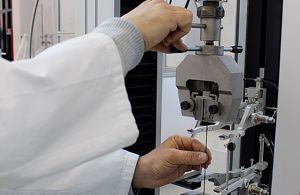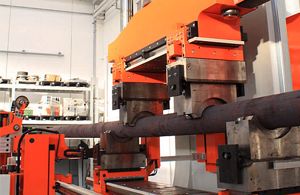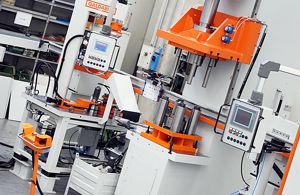-
Product Lines
Material testing machines for quality control

Automatic straightening machines for shafts, profiles

Hydraulic presses, Trimming beading and Automatic production lines

- Company
- Service
- Calibration
- Community
- Contacts
- Library
ASTM A370, ISO 10180, ISO 15630, DIN 488, JIS G3112
Since concrete has a high compressive strength but a lower tensile strength, it is reinforced with the incorporated steel. The reinforcement bars are usually produced with a diameter ranging from 5 mm to 60 mm. The smaller diameters are then further worked to create grids or lattices before they are drowned in the concrete
Some of the most common include ASTM A370, ISO 15630 (..), and ACI 318. These standards include testing requirement that are specific to determining rebar tensile and bend properties
Typical results include:
Static material testing machines are available in a wide range of standard load capacities, generally from 250 kN to 1200 kN. Load cells and advanced control electronics provide force accuracies of +/- 0.5% from 0.2% to 100% of system capacity.
Wedge grips provide proper clamping force to prevent slippage while also reducing the chance for grip-induced failures. Extensometers, manual Clip On or automatic, attach to the uneven surface with enough force to prevent slippage during testing when scale can fall from the specimen surface. Grip covers provide additional shielding to mechanical grip components. Our software Labtest provides pre-built test methods with necessary calculation results ensuring standard compliance and repeatable test results
All Quasar testing machines are static testers and can be configured also for bend and re-bend testing